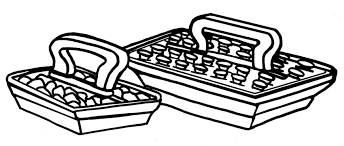A Special Type of Soldier

At the request of the first Presidency, I had gone to England as coordinator for the LDS servicemen. One Saturday afternoon in 1944, I sent a telegram from London to the base chaplain near Liverpool letting him know that I would be in camp the next morning to conduct Mormon church services at 10 am.
When I arrived at the camp, there were seventy-five Mormon boys, all in uniform—and quite a number in battle dress. The chaplain to whom I had sent the wire proved to be a Baptist minister from the southern United States. He, too, was waiting for my arrival. As these young men ran out to greet me—not because it was I, but because of what I represented—and as they literally threw their arms around me, knowing I was representing their parents as well as the Church, this minister said, "Please tell me how you do it."
"Do What?"
"Why," he said, "I did not get your wire until late this morning. I made a hurried search. I found there were seventy-six Mormon boys in this camp. I got word to them. Seventy-five of them are here. The other is in the hospital. I have more than six hundred Baptist men in this camp, and if I gave them six months' notice, I could not get a response like that." And then he repeated, "How do you do it?"
I said, "Sir, if you will come inside, perhaps you will see." We went in to the little chapel. The boys sat down. I asked, "How many here have been on missions?" I think fully 50% raised their hands. I said, "will you and you and you"—and I pointed to six of them—"please come and administer the sacrament? And will you and you and you"—and I pointed to six others—"please come and sit here and be prepared to speak."
Then I said "who can lead music?" A number of hands were raised. "Will you come and lead the music? And who can play this portable organ?" There were several more hands, and one was selected. Then I said, "What would you like to sing, fellows?" With one voice they replied, "Come, Come Ye Saints!"
We had no hymn books. The boy sounded the chord: they all arose. I have heard "Come, Come Ye Saints" sung in many lands and by many choirs and congregations, and—without in any way reflecting adversely on what we usually hear—I think I have only heard "Come, Come Ye Saints," sung that way once when every heart seemed to be bursting. They sang every verse without books. When they came to the last verse, they didn't mute it; they didn't sing it like a dirge—but throwing back their shoulders, they sang out until I was fearful the walls would burst. "And should we die before our journey's through, happy day, all is well;" I looked at my minister friend and found him weeping.
Then one of the boys who had been asked to administer the sacrament knelt at the table, bowed his head, and said, "Oh, God, the Eternal Father," He paused for what seemed to be a full minute, and then he proceeded with the rest of the blessing on the bread. At the close of that meeting I sought that boy out. I put my arm around his shoulders, and said, "Son, what's the matter? Why was it so difficult for you to ask the blessing on the bread?"
He paused for a minute and said, rather apologetically, "Well, Brother Brown, it hasn't been two hours since I was over the continent on a bombing mission. As we started to return, I discovered that my tail assembly was partly shot away, that one of my engines was out, that three of my crew were wounded, and that it appeared absolutely impossible that we could reach the shores of England.
Brother Brown, up there I remembered Primary and Sunday School and MIA and home and church, and up there when it seemed all hope was lost, I said, "Oh, God, the Eternal Father, please support this plane until we reach a landing field.' He did just that, and when we landed, I learned of this meeting and I had to run all the way to get here. I didn't have time to change my battle dress, and when I knelt there and again addressed the Lord, I was reminded that I hadn't stopped to say thanks. Brother Brown, I had to pause a little while to tell God how grateful I was."
Well, we went on with the meeting. We sang. Prayers were offered, and these young men, with only a moment's notice, each stood and spoke, preached the gospel of Jesus Christ to their comrades, bore their testimonies, and again I say—with due respect to the various ones with whom I have associated and labored—they were among the finest sermons I have ever heard. Then the time was up, and I said, "Fellows, it's time for chow. We must dismiss now, or you will miss your dinner."
With almost one voice they cried, "We can eat grub any time—let's have a testimony meeting!" So we stayed another hour and a half while every man bore witness to the truthfulness of the restored gospel of Jesus Christ. Each one in turn, and in his own way, said, "I know that God lives. I know that the gospel is restored. I know that Joseph Smith was a prophet of God."
Again I looked at my friend, and he was weeping unashamedly. At the close of that meeting, this minister said to me, "I have been a minister for more than twenty-one years, and this has been the greatest spiritual experience of my life."